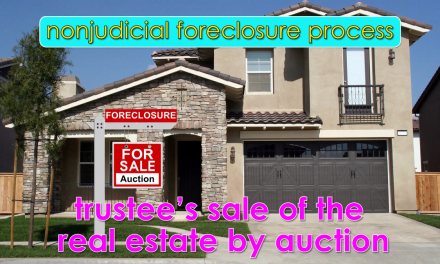Part II of this article series on statutes of limitations (SOLs) pertaining to real estate brokers and agents explains the SOLs for claims of negligent misrepresentation under a fiduciary duty and intentional misrepresentation under both a general and fiduciary duty.
For an introduction to the concept of SOLs and for an in depth analysis of the SOLs pertaining to claims of breach of fiduciary duty and negligent misrepresentation under a general duty, see Part I of this article series.
Negligent misrepresentations under a fiduciary duty
A broker, on soliciting or entering into an employment agreement — a listing — to represent any person in any type of real estate transaction, undertakes a special fiduciary duty to care for and protect that person as his client. This fiduciary duty is a much higher standard of care (the highest) than the general duty he owes to others in negotiations and transactions who are not his client.
Coupled with this higher standard of care owed to clients, representations by statements or omissions (silence) concerning facts affecting a property’s value that are in error and give the client false expectations, but are believed by the broker or agent to be accurate, constitute negligent misrepresentation.
When a broker’s negligent misrepresentation to a client occurs in any type of real estate transaction it is a breach of the broker-client fiduciary relationship. The client’s recovery from their broker for the resulting losses is subject to a three-year SOL period for filing an action to collect. The client’s three-year SOL period for filing claims based on negligence runs from the client’s discovery of the true facts, not from the close of escrow, the starting point for claims made by non-client customers. [CCP § 338]
Consider a buyer’s broker who investigates and negotiates the purchase of a one-to-four unit residential property with the seller or the seller’s broker on behalf of his buyer. Without first reviewing a boundary survey or property profile report on the condition of title to confirm his beliefs concerning the record, the broker advises his buyer about the amount of acreage and the effect of an easement located on the property based on his observations and general knowledge about the property.
The buyer makes an offer to purchase the property. No further-approval contingency calling for his buyer to confirm the representations is included in the purchase agreement prepared by the broker.
In reliance on his broker’s representations as to the size of the property and the burden the easement places on the property, the buyer closes escrow on the purchase and becomes the owner.
Years later, the buyer discovers the acreage and easement representations made by the broker are false — a negligent misrepresentation made by the buyer’s broker due to his erroneous belief in the truth of his statements to the buyer. Since the buyer entered into his purchase offer in reliance on the accuracy of his broker’s representation of property conditions, the property was worth measurably less at the time of purchase than the price paid.
The buyer makes a demand on the broker to recover his losses. The amount of the demand is the difference between the price paid and the fair market value (FMV) of the property at the time of purchase, subject to the effects of the easement allowing others to use the property and the property’s actual acreage. The broker rejects the buyer’s demand.
The buyer then files an action to recover the losses during the third year following his discovery of the recorded facts. The broker claims the buyer’s recovery of his lost value due to his negligent misrepresentations is time-barred by the two-year SOL for breach of a broker’s agency duty to diligently inspect and disclose observable defects on one-to-four unit residential property, the type of property subject to this dispute.
Can the buyer recover losses from his broker on filing a claim more than two years after the close of escrow and acquisition of ownership?
Yes! Here, the buyer has three years from his discovery of the true facts to file an action against his broker to recover his loss in property value due to his reliance on the broker’s negligent misrepresentation. [Field v. Century 21 Klowden-Forness Realty (1998) 63 CA4th 18]
In contrast, the two-year SOL running from taking possession (close of escrow) invoked by the buyer’s broker to bar the client’s claim is only available to shield brokers against claims from non-clients and then only in one-to-four unit residential transactions.
Here, it is the buyer’s broker who made representations to his buyer-client as fact, stated unconditionally (no source given for the opinion) and without provision for further approval or cancellation on an investigation to confirm the representations as a condition of closing and acquiring ownership, called a contingency. He did so without first verifying the information or advising the buyer as to the source of his information.
The existence of a fiduciary duty owed to a client in an action for negligent misrepresentation elevates negligent misrepresentations relied on by a client to the level of constructive fraud. Ignorance or lack of knowledge is not a defense. [Field, supra]
Thus, in cases concerning:
- any property type;
- a real estate broker or agent who owes a fiduciary duty to their client; and
- a negligent misrepresentation of a material fact that results in a loss for the client;
a three-year SOL running from discovery of the misrepresentation applies as a defense to time-bar the client’s claim.
Intentional misrepresentation to client or customer
When a broker, acting as an agent for anyone in any type of real estate transaction, either:
- intentionally withholds critical information (an omission of material facts by silence); or
- asserts conditions as fact which adversely affect the value of a property and are known or should have been known to the broker to be untrue;
the SOL for filing an action to recover related losses is three years from the date of discovery.
A client or customer claim against a broker acting as an agent based on an intentional misrepresentation in transactions regarding any interest in any type of real estate is unconcerned with the nature of the duty (general or fiduciary) owed to the person who suffers the loss due to the broker’s intentionally false statement or failure to disclose (omission) material facts.
Consider a buyer who makes an offer to purchase a one-to-four unit residential property. The seller’s broker is aware of a large structural crack in the foundation of the residence that is not apparent to the buyer on a visual inspection of the property. The seller’s broker delivers a “clean” TDS to the buyer disclosing the property as having no known defective conditions, a statement rendered false through silence by the omission of a fact which has an adverse effect on the property’s value. [See first tuesday Form 304]
More than two years after taking possession, the buyer discovers the crack. The buyer claims the seller’s broker is liable for the cost of repairing the foundation since he knew and failed to disclose the crack existed in the foundation. The broker claims the buyer’s action is time-barred by the two-year SOL for misrepresentation in one-to-four unit residential property transactions since he only owed the buyer the general duty to disclose defects which a diligent visual inspection would reveal.
Is the seller’s broker liable to the buyer for intentionally misrepresenting the existence of the property defect, known to the broker but not observable on an inspection, in spite of the two-year SOL in one-to-four unit residential transactions for negligent misrepresentation?
Yes! The seller’s broker, owing only a general duty of care to the buyer who was not his client, is liable for the buyer/customer’s losses since the broker intentionally deceived the buyer at the time he entered into the purchase agreement by withholding a fact known to the broker and one that adversely affected the value of the property involved in the transaction.
When an intentional misrepresentation made by any broker in a real estate related transaction while acting as an agent causes anyone in the transaction to suffer a loss, the SOL shielding the broker against that claim does not depend on the duty the broker owed to the claimant. Rather, the length of the SOL hinges specifically on the deceitful intent of the broker.
Thus, when a broker or his agent is willfully deceptive, the shield against liability is reduced to their avoiding stale claims under the three-year SOL for intentional fraud. It does not begin to run until the person suffering the loss first discovers the true facts which were misrepresented. [Williams v. Bennet Realtors (1997) 52 CA4th 857]
Thus, in cases concerning;
- any property type;
- a real estate broker or agent who owes the claimant either a general or fiduciary duty; and
- an intentional misrepresentation of a material fact, causing the claimant to incur losses;
a three-year SOL running from the date of discovery of the misrepresentation applies to time-bar the customer or the client’s claim.
Don’t be SOL
The SOL time-bar against general breach of fiduciary duty and misrepresentation claims is a broker’s shield. However, it is not automatic in application and must be invoked by the real estate broker or agent to bar stale claims whether or not they are well founded.
The SOL is a shield against broker liability in situations where a party to a real estate transaction they negotiated takes too long to perfect the claim by filing an action in arbitration or litigation to enforce collection of his losses.
Claims based on the broker’s opinions made as statements of fact are easily avoided by:
- a little preparatory due diligence investigation by the broker or the agent into all readily available sources of information;
- disclosure of the source of the information; and
- the inclusion in purchase agreements of a further-approval contingency provision covering the subject matter of the representation.
Have the foresight to include a contingency provision in agreements entered into based on opinions, statements or inquiries about conditions of the property, law, taxes or title, calling for confirmation of the condition by the person involved prior to closing as a hedge against claims of reliance on the broker or agent’s opinion. [For more information on contingency provision protection, see the September 2011 first tuesday article, Raising the bar of real estate advice.]
However, when misunderstandings or misrepresentations do occur which cause a party to a transaction they brokered to incur a recoverable loss, know your SOL defenses, and keep an eye on the calendar.














